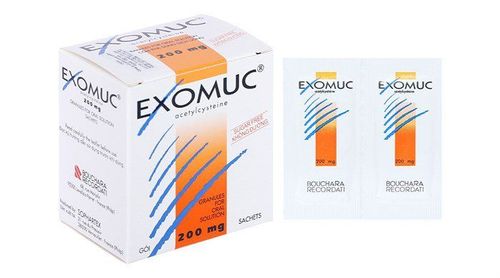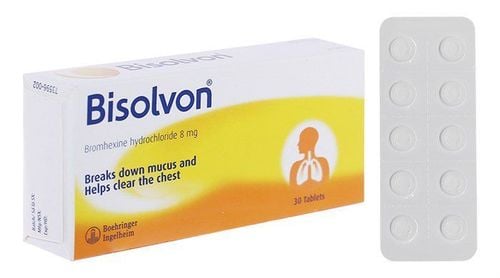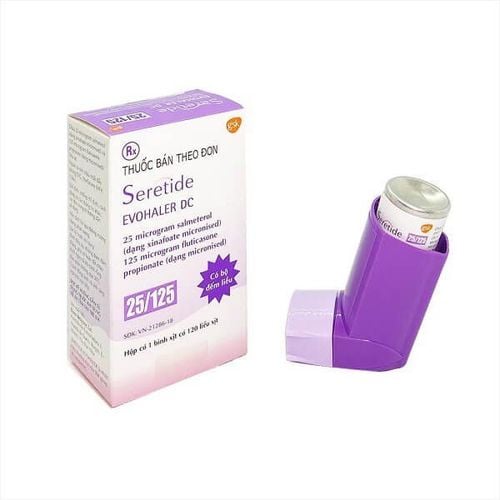Carbocistein is indicated for the treatment of respiratory conditions associated with oversecretion of thick mucus, such as chronic obstructive pulmonary diseases (COPD) and bronchitis. It is available in various formulations and dosages, making it suitable for a wide range of patients.
1. What is Carbocistein?
Carbocistein is a mucolytic agent that reduces mucus viscosity in the lungs, facilitating its clearance through coughing.
Carboncisteine alters the composition and quantity of glycoproteins secreted by the respiratory tract mucosa, as demonstrated in animal studies and human research. Other experimentations on human participants have shown that Carbocistein plays a vital role in reducing goblet cell hyperplasia, thus managing conditions characterized by excessive mucus secretion.
The drug is available in the following formulations:
- Capsules: 200 mg, 375 mg, 500 mg, 750 mg
- Oral solutions: 2g/100 ml, 5g/100 ml, 100 mg/5 ml, 250 mg/5 ml, 750 mg/10 ml, 750 mg/15 ml
- Combination capsules: 500 mg/2 mg, 2g/0.05g
This variety of formulations allows Carbocisteine to be used across different age groups.
2. Therapeutic Uses of Carbocisteine
Carbocisteine is used as an adjunct therapy to liquefy mucus in respiratory conditions with excessive mucus production, such as:
- Chronic obstructive pulmonary disease (COPD)
- Acute bronchitis
- Exacerbations of chronic bronchitis
- Pneumonia
- Pneumothorax
Do not use Carbocisteine in the following cases:
- Patients with hypersensitivity to Carbocistein or any excipients in the medication.
- Active peptic ulcers (gastric or duodenal) due to the medication risk of damaging the goblet cells and protective mucus layer in the stomach.
- Children under 2 years of age.
3. Dosage and Administration of Carbocisteine
Administration: Carbocisteine is taken orally with water, preferably after meals, to minimize irritation of the digestive tract. Specific administration instructions depend on the formulation.
Dosage:
- Adults: Take an initial (loading) dose of 2250 mg daily, divided into 4 doses. For maintenance dose, take 1500 mg daily, divided into several doses once treatment response is positive and improving.
- Children: Take 20 mg/kg/day, divided into multiple doses. For children aged 2–5 years, take 62.5–200 mg distributed over 2–3 times daily. For children aged 6–12 years take 250–300 mg per dose, 3 times daily. Syrups or oral granules are typically used for children.
This drug therapy usually does not exceed 10 days unless otherwise directed by a physician.
Note: Dosages may need adjustment based on the patient’s condition and response to treatment.
4. Precautions when using Carbocisteine
- Avoid use if there is a known allergy or hypersensitivity to any component of the medication.
- Carbocistein is generally well-tolerated, but in rare cases, it may cause side effects, such as, gastrointestinal disorders, indigestion, nausea, discomfort, gastrointestinal bleeding; increased bronchial mucus secretion; Stevens-Johnson syndrome; erythema multiforme. Hypersensitivity reactions, including rash, hives, dizziness, difficulty breathing, facial or throat swelling. In the event of severe side effects, immediate medical attention is necessary. Family members should promptly take the patient to the nearest healthcare facility for emergency treatment.
- Overdosing on Carbocistein may lead to gastrointestinal symptoms such as digestive disturbances or abdominal pain. Treatment will depend on the symptoms and may include gastric lavage and close monitoring.
- Special Precautions for Sugar-Free Syrup Formulation: sugar-free Carbocistein syrups contain alcohol. Therefore it is contraindicated for children under 18 years old, pregnant or breastfeeding women, patients with conditions exacerbated by alcohol, such as liver disease or edema.
- Avoid prolonged use exceeding 14 days unless specifically instructed by a physician.
Carbocistein is a mucolytic agent that liquefies mucus or phlegm but is not a cough suppressant. Its use may increase coughing reflexes as the body works to expel mucus. Patients should not be overly concerned, as coughing will naturally subside once the mucus clears. Avoid combining this medication with antitussive (cough-suppressing) drugs. - No conclusive scientific evidence supports the safe use of Carbocisteine in pregnant women. It is best avoided, especially during the first trimester. Moreover, there is insufficient data on whether the drug passes into breast milk. For safety, use of Carbocisteine is not recommended while breastfeeding.
- Do not use the medication if there are signs of spoilage or if it is past its expiration date. Store the medication in a cool, dry place below 30°C, away from moisture and direct sunlight. Carefully follow storage instructions for each specific formulation, as they may vary.
This information provides an overview of the uses, administration, and precautions for Carbocistein. However, it is recommended to always consult a physician or pharmacist for personalized guidance and to avoid potential risks.
Follow the Vinmec International Hospital website for more health, nutrition, and wellness information to protect your health and that of your loved ones.
To arrange an appointment, please call HOTLINE or make your reservation directly HERE. You may also download the MyVinmec app to schedule appointments faster and manage your reservations more conveniently.
To arrange an appointment, please call HOTLINE or make your reservation directly HERE. You may also download the MyVinmec app to schedule appointments faster and manage your reservations more conveniently.








